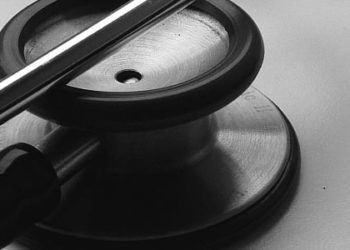Factors related to suicide and burnout among physicians
1. Physicians who committed suicide tended to be older, report having issues with their jobs, and have ongoing physical health or legal issues.
2. Compared with other physicians, surgeons who committed suicide were older and more likely to be receiving care related to mental health.
Evidence Rating Level: 2 (Good)
Study Rundown: Burnout is becoming increasingly prevalent amongst physicians, and has been shown to lead to poor health outcomes for both the individual and their patients. Prior literature has demonstrated that suicide and burnout have significant overlap in terms of risk factors. To expand upon these findings, this study made use of deaths recorded in the National Violent Death Reporting System (NVDRS) between 2003 and 2016 to identify modifiable risk factors as well as particular groups at increased risk.
In this retrospective cohort study, physicians committing suicide tended to be older on average compared with the general population. They were also more likely to be further along in their careers (i.e., past residency), report Asian or Pacific Islander ancestry, job issues, civil legal problems, and ongoing medical concerns. They were less likely to report experiencing intimate partner violence, problems with alcohol use, black ancestry, female sex, or being unmarried. When compared with non-surgeon physicians, surgeons were at the time off death more likely to be receiving care for mental health and be older. No association was found between physician suicide and substance use.
This study was limited by a relatively homogenous study cohort consisting mostly of white men, which may limit generalizability of findings. Additionally, the study did not make comparisons with individuals, both physicians and otherwise, who died of causes other than suicide; thus, it remains unclear whether the risk factors identified are unique to death by means of suicide among physicians. Nonetheless, study findings identified several risk factors associated with physician suicide and burnout, and reinforce the need for robust and accessible social services available to support physicians across all levels of training.
Click here to read the study in JAMA Surgery
Click here to read an accompanying editorial in JAMA Surgery
Relevant reading: Interventions to prevent and reduce physician burnout: a systematic review and meta-analysis
In-depth [retrospective cohort study]: The NVDRS identified 170,030 individuals (M [SD] age = 46.8 [31.5] years, 77.7% male, 87.8% white) between 2003 and 2016 as committing suicide, 767 of whom were physicians (M [SD] age = 59.6 [15.6] years, 88.0% male, 89.7% white). The physician cohort was further subdivided by specialty to include 485 non-surgeon physicians (M [SD] age = 59.7 [15.6] years, 84.3% male, 89.1% white), 179 dentists (M [SD] age = 61.7 [14.3] years, 93.3% male, 93.3% white), and 103 surgeons (M [SD] age = 64.2 [15.5] years, 96.1% male, 86.4% white), comprised of numerous surgical subspecialties.
Among physicians and non-physicians alike, the most common method of suicide was self-harm via firearm. Physicians who committed suicide were, on average, older than members of the general population who commit suicide (OR 1.003, 95% CI 1.003 to 1.004, p <0.001). A multiple logistic regression analysis revealed that they were also more likely to be of Asian or Pacific Islander ancestry (OR 2.80, 95% CI 1.96 to 3.99, p <0.001), experiencing job stressors (OR 1.79, 95% CI 1.49 to 2.17, p <0.001), involved with civil legal issues (OR 1.61, 95% CI 1.15 to 2.26, p = 0.006), and coping with ongoing health problems (OR 1.40, 95% CI 1.19 to 1.64, p <0.001). Comparing surgeons to non-surgeon physicians revealed older age at the time of death (M [SD] age = 64.2 [15.5] years vs 59.7 [15.6] years, OR 1.03, 95% CI 1.01 to 1.05, p = 0.002). Surgeons were also more likely to be receiving care related to mental health (OR 1.68, 95% CI 1.03 to 2.74, p = 0.04).
Image: PD
©2020 2 Minute Medicine, Inc. All rights reserved. No works may be reproduced without expressed written consent from 2 Minute Medicine, Inc. Inquire about licensing here. No article should be construed as medical advice and is not intended as such by the authors or by 2 Minute Medicine, Inc.







